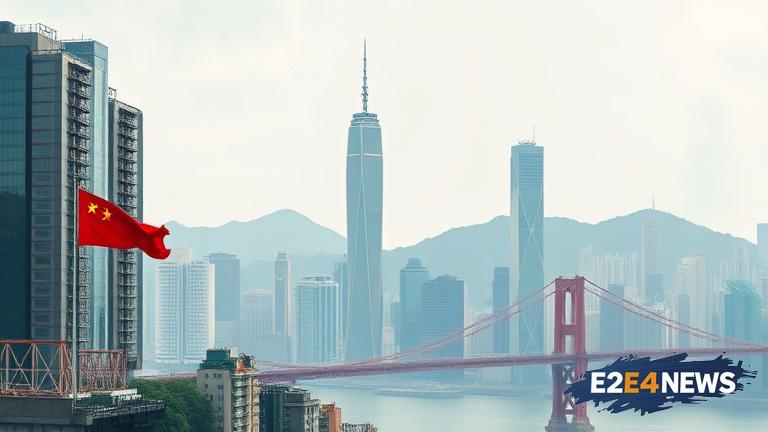The Hong Kong government has rejected the visa renewal application of a Bloomberg reporter, sparking concerns over press freedom in the region. The move has been widely criticized by journalists and human rights groups, who see it as an attempt to silence critical voices. The reporter, whose identity has not been disclosed, had been working in Hong Kong for several years and had applied for a routine visa renewal. However, the application was rejected without explanation, leaving the reporter and their employer in limbo. The rejection has raised concerns about the erosion of press freedom in Hong Kong, which has long been known for its vibrant and independent media landscape. In recent years, however, the region has seen a growing trend of self-censorship and intimidation of journalists, particularly those who report on sensitive topics such as politics and human rights. The rejection of the Bloomberg reporter’s visa renewal application is seen as a further escalation of this trend, and has sparked fears that other journalists may face similar treatment. The Hong Kong government has not provided any explanation for the rejection, citing confidentiality and national security concerns. However, critics argue that this is a thinly veiled attempt to silence critical voices and stifle press freedom. The move has been condemned by journalists and human rights groups, who see it as a threat to the region’s reputation as a hub for international journalism. The International Federation of Journalists has expressed concern over the rejection, stating that it is a clear attempt to intimidate and silence journalists. The Hong Kong Journalists Association has also spoken out against the move, arguing that it undermines the region’s commitment to press freedom. The rejection of the Bloomberg reporter’s visa renewal application is not an isolated incident, but rather part of a larger trend of erosion of press freedom in Hong Kong. In recent years, several journalists have been arrested, detained, or forced to flee the region due to their reporting on sensitive topics. The region’s media landscape has also become increasingly polarized, with many outlets facing pressure to self-censor or toe the government line. The rejection of the Bloomberg reporter’s visa renewal application has sparked fears that other journalists may face similar treatment, and has raised concerns about the long-term viability of press freedom in Hong Kong. The incident has also sparked a wider debate about the role of journalism in society, and the importance of a free and independent press in holding those in power to account. As the situation continues to unfold, it remains to be seen how the Hong Kong government will respond to criticism and concerns over press freedom. However, one thing is clear: the rejection of the Bloomberg reporter’s visa renewal application is a worrying development that has significant implications for the region’s media landscape and its reputation as a hub for international journalism. The incident has sparked a global outcry, with many calling for the Hong Kong government to reconsider its decision and uphold its commitment to press freedom. The United States, the European Union, and other countries have expressed concern over the rejection, and have called on the Hong Kong government to respect the rights of journalists and protect press freedom. The incident has also sparked a wider debate about the role of China in Hong Kong’s media landscape, and the extent to which the Chinese government is exerting pressure on the region’s journalists and media outlets. As the situation continues to unfold, it remains to be seen how the Hong Kong government will respond to criticism and concerns over press freedom, and what implications this will have for the region’s media landscape and its reputation as a hub for international journalism.
